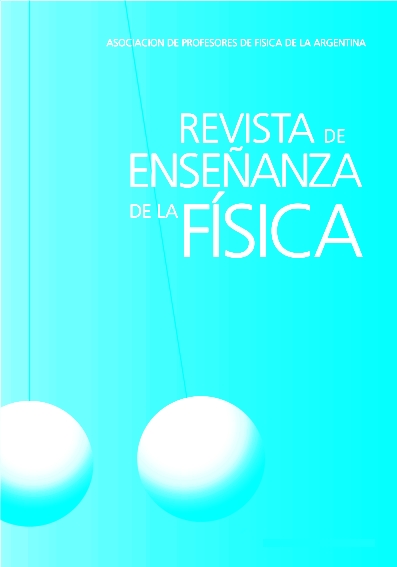Methodological approaches in a research about of physics learning with technology in people with ADHD
DOI:
https://doi.org/10.55767/2451.6007.v28.n2.15811Keywords:
Attention-Deficit/Hyperactivity Disorder - ADHD-, Educational Technology, Teaching and Learning, PhysicsAbstract
Physics learning by students with Attention- Deficit with or without Hyperactivity Disorder – is something to investigate. Based on this premise, we proposed two objectives whose results will be communicated in this presentation. The first objective is to collect and analyze research in Science Education Technologies for students with ADHD. As a direct result of this analysis we formulate the main research question. The second objective is to report the first methodological explorations that were made to answer the question. Examining educational bibliography about this deficit, it is possible to use educational Technology to favour their learning. If technology was chosen taking into account some criteria, it could allow these students to pay more attention, continue and concentrate on their tasks. These discussions and negotiations are informed and they guide you to take methodological decisions to favour their physics learning on these ADHD students.References
Abadi, A. y Tripicchio, P., (2015). Material de Cátedra: Curso TDAH Infantojuvenil. Diagnóstico y tratamiento. Instituto Ineco.
Achilli, L. (2005). Investigar en Antropología social. Los desafíos de transmitir un oficio. Rosario: Centro de estudios Antropológicos Urbanos, Fac. de Humanidades y Artes, UNR y Laborde Libros.
Bauermeister, J. (2014). Hiperactivo, Impulsivo, Distraído ¿Me conoces? Guía Acerca del Déficit Atencional (TDAH) Para Padres, Maestros y Profesionales. Grupo Albor Cohs División Editorial.
De Sá Guimarães, M., de Carvalho, L. A. y da Costa R. M. E. M. (2007). Ambientes Virtuais an prática educacional de crianças com Trastorno de Déficit de Atenção e/ou Hiperatividade, Laboratorio de Banco de Dados, Disponible en: http://www.lbd.dcc.ufmg.br/colecoes/svr/2007/0027.pdf [Sitio consultado en abril 2016]
Desch, L. W. (2000).The use of Microcomputer Software as an Adjuctive Therapy for Children with Attention Deficit Hiperactivity Disorder, Attention Deficits and Hiperactivity in Children and Adults, 551-558.
Disposición Nº 59/2013 (2013). Para el abordaje de las dificultades especificas del aprendizaje en todos los niveles de enseñanza, su alcance y recomendaciones. Ministerio de Educación de la Provincia de Buenos Aires. Dirección General de Cultura y Educación. Disponible en: https://escuelaprimarialh.files.wordpress.com/2013/08/resolucic3b3n_acompac3b1antes_externos_rm_nc2ba_782-13-1.pdf [Sitio consultado en Julio 2016]
Fabio, R. A. y Antonietti, A. (2012).Effects of hypermedia instruction on declarative, conditional and procedural knowledge in ADHD students, Research in Developmental Disabilities, 33, 2028–2039.
Ford, M. J., Poe, V., Cox, J. (1993).Attending behaviors of ADHD children in math and reading using various types of software, Journal of Computing in Childhood Education, 4(2), 183-196.
González Russ, G. y Oliver Franco R. D. (2002).La Informática en el Déficit de Atención con Hiperactividad. Jornadas de Hiperactividad, Fundación ICSE, Sevilla. Disponible en: http://diversidad.murciaeduca.es/tecnoneet/docs/2002/3-142002.pdf [Sitio consultado en Abril 2016]
Guber, R. (2001). El salvaje metropolitano. Reconstrucción del conocimiento social en el trabajo de campo. Buenos Aires: Paidós.
Justi, R. (2011). Las concepciones de modelo de los alumnos, la construcción de modelos y el aprendizaje de las ciencias. En Caamaño. A. (coord.) Didáctica de la física y la química. España: Grao.
Mayer, R. E. (2003). The promise of multimedia learning: Using the same instructional design methods across different media, Journal of Educational Psychology, 83,484–490.
Pérez Serrano, G. (1998).Investigación cualitativa: retos e interrogantes. España: La muralla.
Rief, S. (1999). Cómo tratar y enseñar al niño con problemas de atención e hiperactividad. Técnicas, estrategias e intervenciones para el tratamiento del TDA/TDAH. Buenos Aires: Paidós.
Rodríguez Gómez. G., Gil Flores, J. y García Jiménez, E. (1996). Metodología de la investigación cualitativa. Granda: Ediciones Aljibe.
Stipcich, S. (2010). Un encuadre metodológico para el estudio de las clases de Física con tecnología. En Santos, G. y Stipcich, S. (eds.) Tecnología educativa y conceptualización en física. Estudio sobre interacciones digitales, sociales y cognitivas. Buenos Aires: Consejo Editorial-UNCPBA.
Stake, R.E. (2007). Investigación con estudios de casos. Madrid: Morata.
Yin, R.K. (1994).Case Study Research. Design and Methods. Newbury Park, CA: Sage.
Downloads
Published
Issue
Section
License
Copyright (c) 2016 María Alejandra Domínguez

This work is licensed under a Creative Commons Attribution-NonCommercial-NoDerivatives 4.0 International License.
Aquellos autores/as que tengan publicaciones con esta revista, aceptan los términos siguientes:Los autores/as conservarán sus derechos de copiar y redistribuir el material, bajo los términos estipulados en la Licencia de reconocimiento, no comercial, sin obras derivadas de Creative Commons que permite a terceros compartir la obra bajo las siguientes condiciones:
- Reconocimiento — Debe reconocer adecuadamente la autoría, proporcionar un enlace a la licencia e indicar si se han realizado cambios. Puede hacerlo de cualquier manera razonable, pero no de una manera que sugiera que tiene el apoyo del licenciador o lo recibe por el uso que hace.
- NoComercial — No puede utilizar el material para una finalidad comercial.
- SinObraDerivada — Si remezcla, transforma o crea a partir del material, no puede difundir el material modificado.
- Los autores/as podrán adoptar otros acuerdos de licencia no exclusiva de distribución de la versión de la obra publicada (p. ej.: depositarla en un archivo telemático institucional o publicarla en un volumen monográfico) siempre que se indique la publicación inicial en esta revista.
- Se permite y recomienda a los autores/as difundir su obra a través de Internet (p. ej.: en archivos telemáticos institucionales o en su página web) antes y durante el proceso de envío, lo cual puede producir intercambios interesantes y aumentar las citas de la obra publicada. (Véase El efecto del acceso abierto).










